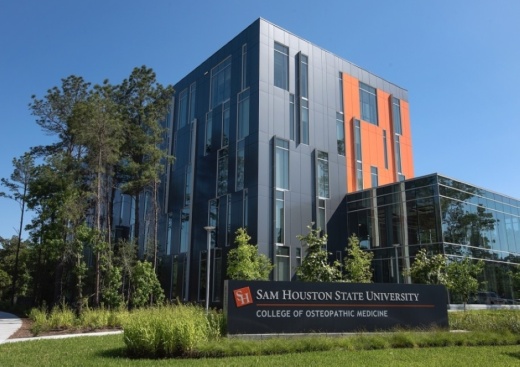Texas Sen. Brandon Creighton, R-Conroe, presented Senate Bill 1563 to the Higher Education subcommittee March 23. If passed, the bill would provide funding to Sam Houston State University's College of Osteopathic Medicine in Conroe.
According to an update by Creighton's office March 27, the bill would provide necessary funding for the school to expand and train the next generation of in-demand physicians that "Texas desperately needs."
Thomas Mohr, dean and professor of internal medicine at SHSU College of Osteopathic Medicine, said students at the college pay almost twice as much in fees compared to other state medical schools leaving them with higher debt loads. According to the SHSU website, the average first-year osteopathic medical student pays an average $85,408 a year. The Education Data Initiative, an organization that gathers statistics about the U.S. education system, reported that the average yearly cost to attend a public medical school in 2022 was $57,574. Texas' two other colleges that offer a doctorate degree in osteopathic medicine include the University of North Texas Health Science Center at Forth Worth and the University of Incarnate Word in San Antonio. Tuition at both campuses averages approximately $60,000-$65,000 a year.
"If passed, SB 1563 will ensure the affordability of the education we provide to our student doctors is on par with other medical schools in the state and advance our mission of providing primary care physicians, enhancing health care access in Texas and beyond," he said in an email.
In 2019, the Texas Legislature established the SHSU Medical School through HB 2867. According to the senator's update, the creation of the campus was intended to address the shortage of primary care physicians and rural healthcare needs. In the last four years, Creighton's office reported that the Conroe campus has increased its class size by 34% and doubled the volume of applicants.
Community Impact reported in June that class sizes went from 112 students to 150 for the 2022-23 school year.
Shannon Ramsey Jimenez, interim dean and associate professor of family medicine, said the increase was a result of the national increase in medical school applications, partially due to the pandemic. Its number of applications had risen from fewer than 3,000 applications in 2020 to around 6,800 applications for 2022-23.
The college also announced in February that it will start its first residency program this summer.
The 88th Texas legislative session will run until May 29.





